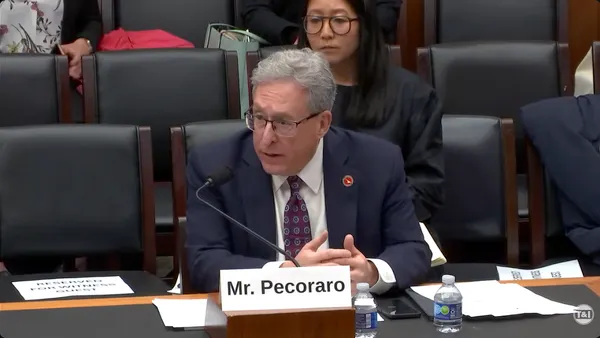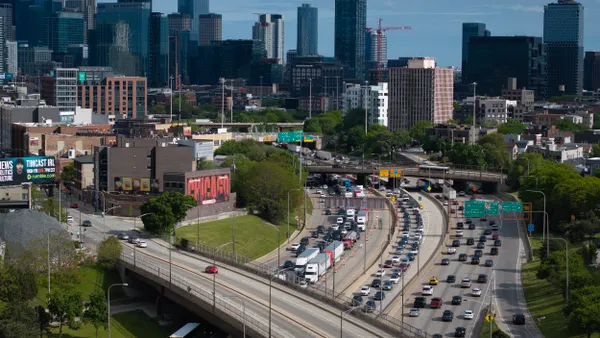UPDATED, Jan. 27, 2020: The Los Angeles County Metropolitan Transportation Authority (Metro) voted to extend its pilot partnership with ride-share service Via for an additional six months, following a successful first year. Via has provided more than 75,000 rides in the Los Angeles Metro area since its pilot launch in January 2019.
The service will extend operating hours to a new schedule of 6 a.m. to midnight on weekdays, and 8 a.m. to 10 p.m on weekends. Via says extended hours have "proven successful in Seattle," where Via runs a similar pilot.
Metro will provide $2.2 million for the expanded pilot, with another $2.7 million allotted for an additional extension. More than $500,000 of this funding was carried over from the initial pilot, which came in under budget.
Dive Brief:
- Via has launched its portion of a one-year microtransit pilot in partnership with the Los Angeles County Metropolitan Transit Authority (Metro). Two other mobility companies — RideCo and Transdev — also are piloting microtransit solutions in the city.
- Via's program focuses on first mile/last mile solutions to transport people to or from three transit stops: Compton (Artesia), El Monte and North Hollywood. Passengers can request a shuttle ride beginning or ending at one of the three locations and an algorithm will match them with others going in the same direction.
- Via says the main goal of the pilot is to extend the benefits of on-demand transportation to a wider audience. Its portion of the pilot is estimated to cost $2.5 million, partially funded by a $1.35 million grant from the Federal Transit Administration (FTA).
Dive Insight:
This pilot was initially announced in 2017 but is just now getting off the ground. Metro, which reports the city's microtransit program is still under development and will fully launch next winter, began seeking public feedback on attitudes toward on-demand services earlier this month.
Public transportation in the Los Angeles area has long been considered to lag behind that of other major cities. Residents are car-dependent, leading to the area's notoriously crippling congestion. Even though Los Angeles has a subway system, it is not nearly as widely used by locals as other cities'.
Metro has made a huge push in the last few years to improve service and mobility options for citizens. During its State of the Agency report last summer, leaders explained their targeted efforts to turn around the transit system and make it more attractive to residents through innovation, with a greater focus on equity. Bus system improvements and a proposed bike-share program expansion are among the city's transportation changes.
The microtransit pilot is among the 28 projects in Metro's "Twenty-Eight by '28" transportation plan, which is expected to be completed before the city hosts the 2028 summer Olympics. Other projects in the ambitious plan include highway improvements, new bus rapid transit corridors and rail system extensions. Last week Metro also began another round of work — this one a $350 million investment — on a massive project to improve and modernize its Blue Line.











